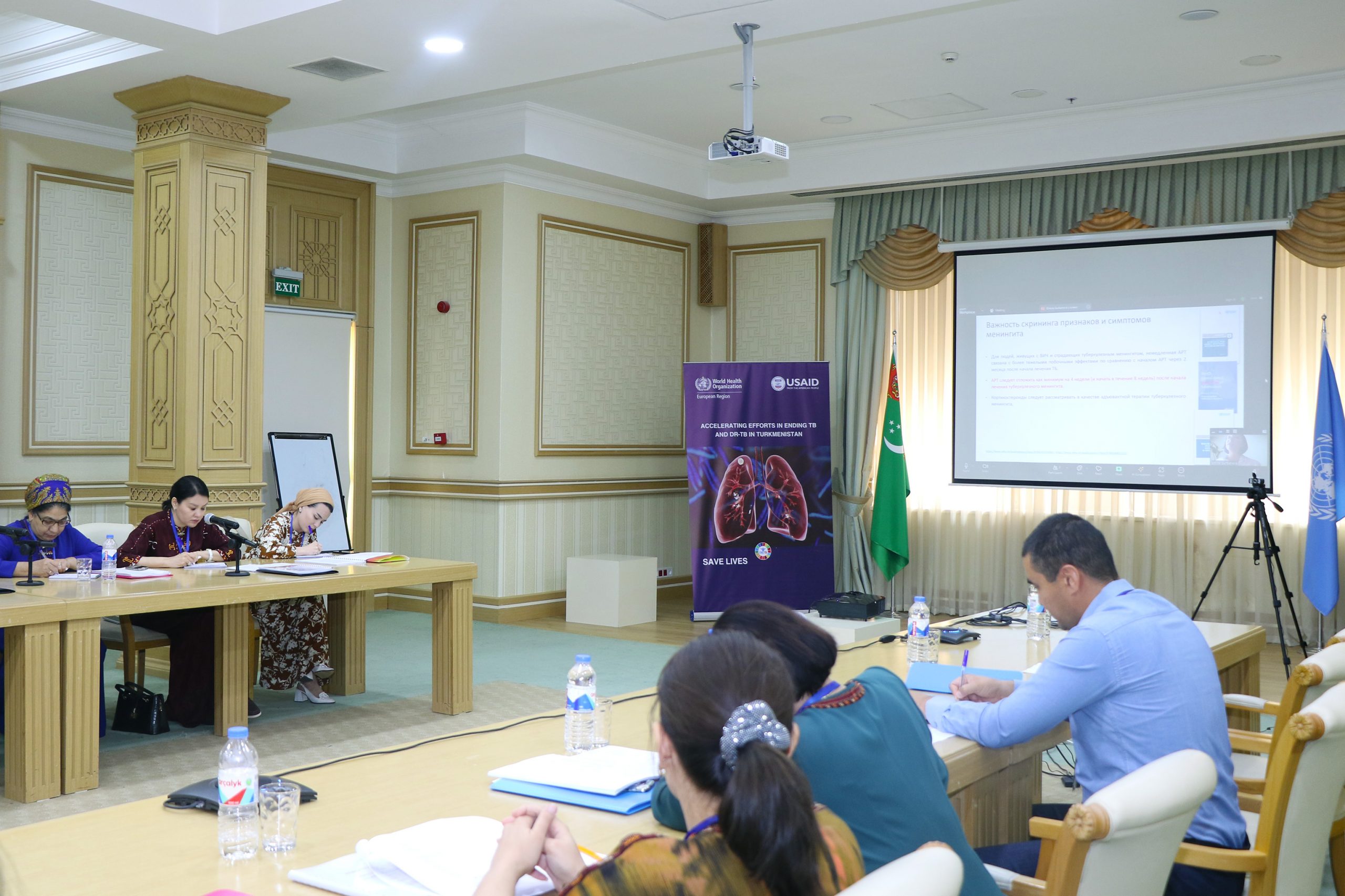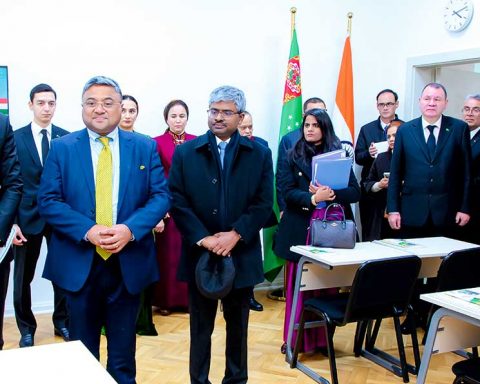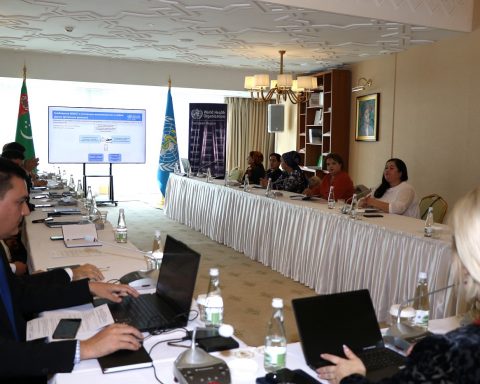Ashgabat, Turkmenistan – July 5, 2024. In a significant step toward combating tuberculosis (TB) and improving patient care, the World Health Organization (WHO) and the United States Agency for International Development (USAID) recently hosted a five-day international training course. The course, titled “Treatment of TB, RR-TB, and TB Infection in accordance with WHO recommendations and national guidelines,” brought together TB specialists from the Directorate of Infectious Diseases Centers of the Ministry of Health and Medical Industry of Turkmenistan (MoHMIT) and the Department of Tuberculosis of the Turkmen State Medical University named after Myrat Karryyev.
WHO/Europe consultants, Professor Alena Skrahina and Dr. Elmira Gurbanova, led the sessions of the training course, organized within the framework of the WHO-USAID project “Accelerating efforts to end TB in Turkmenistan.”
Participants engaged in discussions on a wide range of topics, including:
– New diagnostic methods for TB and TB infection
– Treatment approaches for drug-resistant TB (DR-TB) and rifampicin-resistant TB (RR-TB) in both children and adults
– Clinical case studies using short treatment regimens for DR-TB and RR-TB
The training also covered co-infections, such as RR-TB and viral hepatitis C, TB/RR-TB and HIV, and the intersection of TB with pregnancy and diabetes. Participants explored clinical cases related to RR-TB treatment, including acute renal failure, myelosuppression, mental disorders, clostridioides difficile, optic neuritis, and peripheral neuropathy. Additionally, the course addressed TB infection management for contacts of DR-TB and multidrug-resistant TB (MDR-TB), RR-TB treatment in the context of alcohol dependence and QTcF interval prolongation. The training concluded with discussions on the registration of TB and RR-TB treatment outcomes, emphasizing the assessment of program effectiveness.
Dr. Elmira Gurbanova, one of the course leaders, expressed optimism about the impact of the training: “By aligning our practices with WHO recommendations and national guidelines, we can improve patient outcomes and contribute to the global fight against TB.”
The international training course provided a valuable platform for medical professionals to enhance their knowledge and skills, fostering collaboration and advancing TB treatment strategies.








